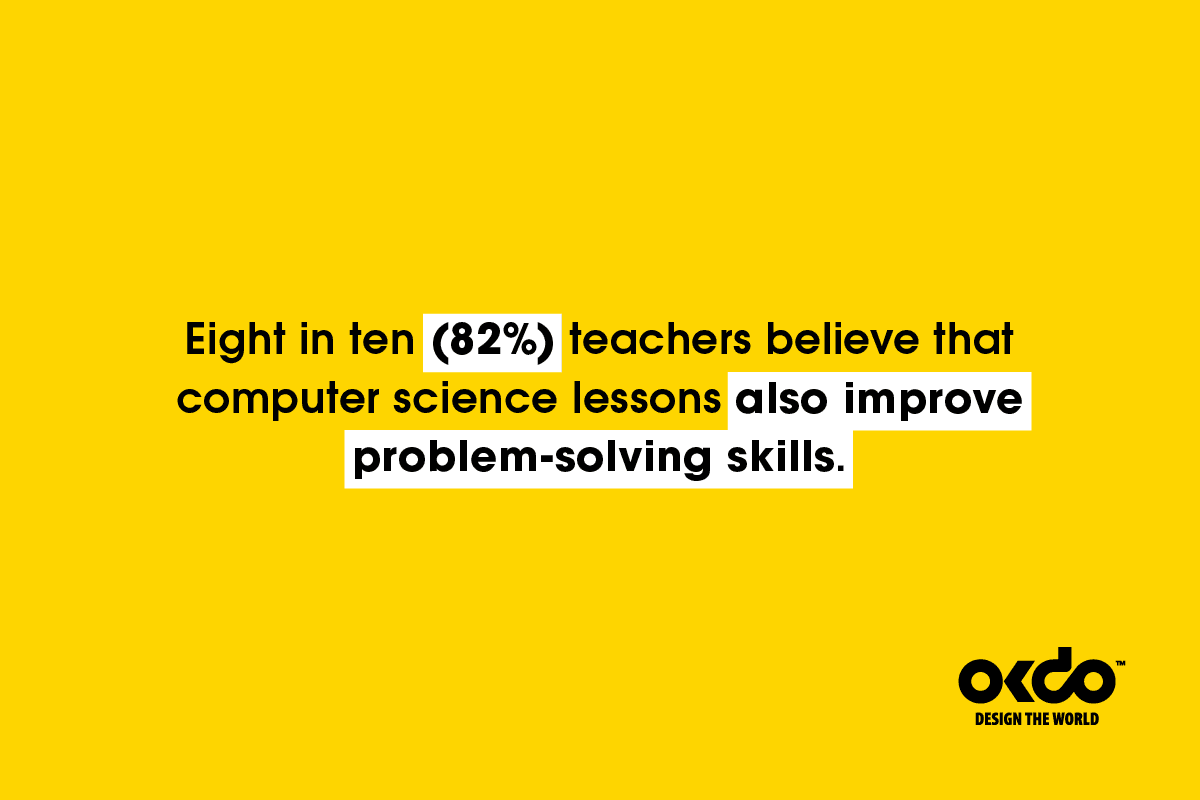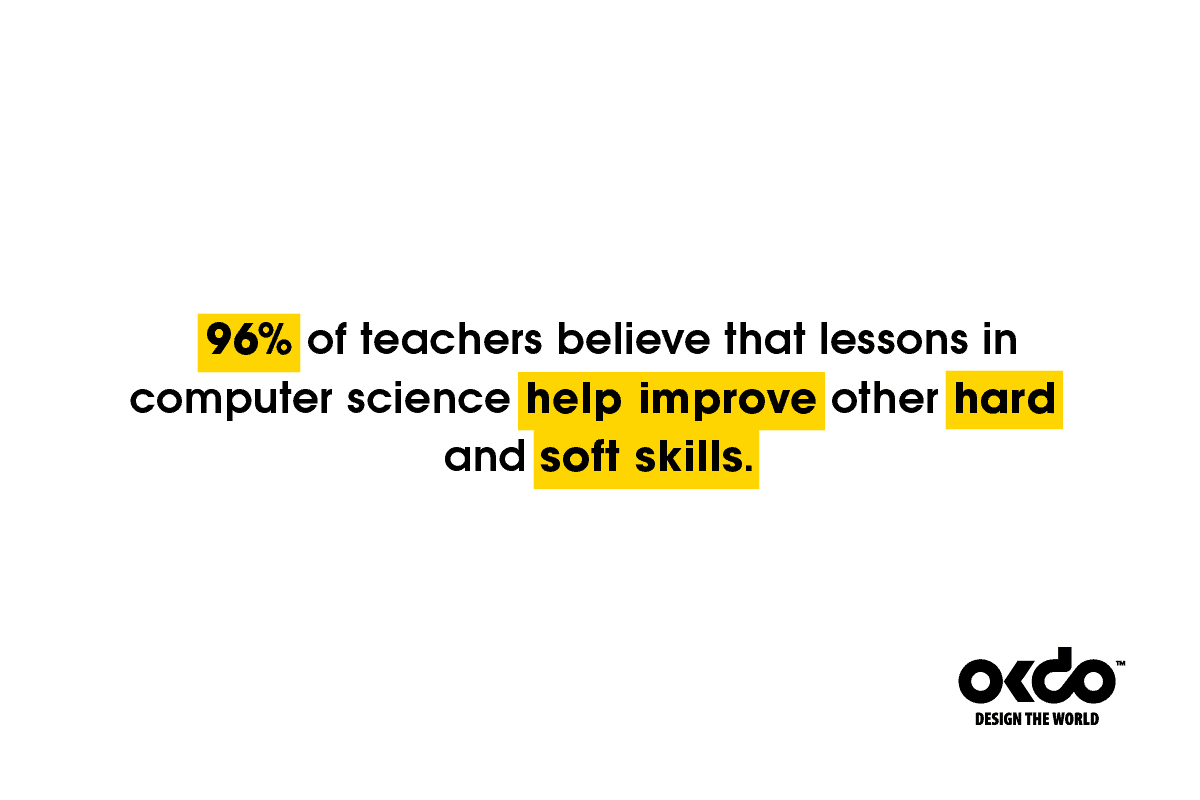Educating children in computing and IT is more important now than ever before. With core school funding set to rise by £4 billion over the next academic year, it’s the most crucial time for schools to home in on new, necessary skills for 21st-century jobs. From digital literacy to critical thinking and teamwork, these essential skills can be nurtured through coding.
In this guide, we’ll explore the direct correlation between teaching children to code and the secure development of the most sought after skills in a digital world.
What do teachers already know about coding?
It’s no secret that the UK is facing a computer science skills shortage, prompting the need to refine and improve the computer science education offerings across the country. With the help of extensive research by global technology experts OKdo, however, it’s now possible to see the lasting benefits of learning to code.

OKdo carried out their survey by interviewing almost 7,000 parents and teachers of primary- and secondary-aged children and the results proved just how much more potential could be harnessed through coding. With over 96% of teachers reporting seeing first-hand proof that computer science education aids the development of other skills, other highlights include:
- Over eight in ten teachers agreed that IT enhances problem-solving
- Almost seven in ten said coding develops mathematical skills
- Three in five believe coding improves creative thinking abilities
Overall, the study by OKdo pointed to the overwhelming fact that teaching coding can only build upon and increase a child’s skillset. Parents of children who either learned to code or were taught computer science at school agreed that their creative and mathematical aptitudes were ‘above average’ for their age group.

How can coding be introduced in schools?
Luckily, there are several affordable ways for teachers to incorporate coding into the IT curriculum. While some schools opt for physical STEM toys, using a single-board computer like the Raspberry Pi is an incredibly effective way to introduce powerful technologies to children. Accessible, portable, and versatile, these devices offer children the freedom to create their systems, solutions, and programs.
What are the lasting benefits of learning to code?
Personal development from learning to code should not be underestimated. Amongst improvements in core skills, coding is known to improve teamwork and communication skills. Encouraging children to tackle problems with a ‘trial and error’ approach teaches perseverance, resilience, and patience.

Finally, it’s always worth remembering that any advanced knowledge in computing and coding opens doors to professional careers in programming and software development. In an increasingly technical modern world, these skills make it much easier to find a role to work at the forefront of the latest innovations.






